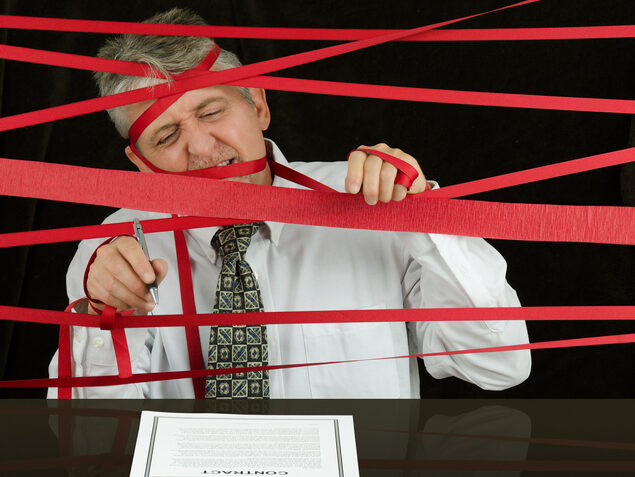A bipartisan group of New Jersey state senators has offered legislation to create a regulatory review commission that would conduct cost-benefit analyses of the state’s regulations with the goal of reducing red tape.
S-441, cosponsored by Sens. Steve Oroho (R-24) and Paul Sarlo (D-36), would establish a nine-member Government Efficiency and Regulatory Review Commission to consider the economic impact of all proposed and adopted regulations, rules, and executive orders in the state.
In its most recent index ranking the 50 United States according to how friendly their policy and tax environments are for small business, the Small Business and Entrepreneurship Council (SBE Council) ranked the state of New Jersey dead last, 50 out of 50.
In related research, the Fraser Institute’s most recent annual survey of economic freedom in North America ranked New Jersey 32 out of 50. The index looks at five economic categories, including regulation. A 2015 report by the Pacific Research Institute titled “The 50-State Small Business Regulation Index” ranked New Jersey 49 out of 50 for regulatory burdens on business.
Oroho says the bill is intended to reverse this overregulation.
“With this commission’s help, we can ease the impact of government regulation in New Jersey, something that is desperately needed and long overdue,” Oroho stated In a press release. “The overwhelming glut of onerous laws and rules are responsible for our state’s reputation as unfriendly to business.”
“If we can target and eliminate the most damaging examples of counterproductive bureaucratic overreach, we can rebuild our competitive edge and restore New Jersey’s position as an economic powerhouse,” Oroho said.
This isn’t the first time in recent memory New Jersey has attempted regulatory reform. In 2010, Gov. Chris Christie launched a red-tape-cutting program that lasted through his two terms as governor. The program achieved mixed results, a 2018 analysis by the Mercatus Center found. Although the program didn’t appear to reduce the overall regulatory burden, it did result in the repeal of some old regulations and likely resulted in a slowdown in adopting new regulations.
The widespread business closures resulting from states’ COVID-19 lockdown mandates have spurred lawmakers in some states and localities across the country to acknowledge large numbers of regulations were completely unnecessary if not altogether harmful. For example, Certificate of Need (CON) laws in numerous states require health care providers to seek approval from a state board for any expansion of services, such as construction of new facilities or purchase of new equipment. During a massive viral pandemic in which hospitals faced the possibility of exceeding capacity, many of these restrictions have been repealed on a temporary or permanent basis, providing legislators with a successful example and roadmap on how to find and remove unnecessary red tape.
Americans for Tax Reform maintains a list of all federal, state, and local regulations that have been suspended in response to the COVID-19 pandemic. To date, they have compiled 846 regulations. The list shows New Jersey as having withdrawn 15 regulations largely relating to health care, including CON laws, with a few others on topics such as property taxes and recycling. Most of these waivers are temporary, predicated on public health emergency orders, and the state could start an earnest reform effort by making them permanent.
